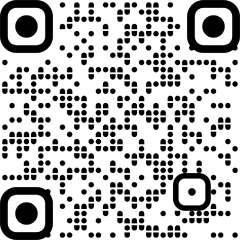
New Delhi: A public interest litigation (PIL) has been filed in the Delhi High Court challenging Rule 13(1)(a) of the Assisted Reproductive Technology (ART) Rules. The impugned rule states that ART clinics must ensure that all unused gametes (eggs or sperm) or embryos are preserved exclusively for the same recipient and cannot be used for any other couple or woman.
The petitioner, Dr Aniruddha Narayan Malpani, a leading reproductive healthcare professional, challenges the regulation as outdated and overly restrictive, calling for it to be struck down or modified to allow greater flexibility in managing unused reproductive material, particularly in light of advancements in reproductive technology and the evolving needs of society.
Key points raised in the petition states that Rule 13(1)(a) of the ART Rules, 2022, mandates that ART clinics preserve unused gametes or embryos exclusively for the same recipient. This prohibits the use of these reproductive materials by any other couple or woman, effectively ruling out embryo adoption by third parties.
The petitioner, through Advocate Mohini Priya and Advocate Ivan, challenges this provision as it ignores the realities of reproductive healthcare and modern medical advancements. Fails to consider situations where the original recipient no longer requires the preserved gametes or embryos due to reasons such as successful conception, changes in personal circumstances, or medical conditions.
The impugned rule is claimed to be an arbitrary restriction that undermines the autonomy and reproductive choices of individuals or couples who may wish to donate their unused gametes or embryos to other couples or women in need, stated the plea.
The petition further states that the rule imposes an unreasonable classification, treating embryos differently based on the recipient’s continued need without any rational basis. It is also argued that this rule infringes upon reproductive rights, which are part of the broader right to privacy, autonomy, and the ability to make personal medical decisions.
The Petition points out that many countries, including the United States and parts of Europe, have already embraced embryo adoption, recognising it as a viable and ethical option to help childless couples. In India, with infertility on the rise due to a variety of factors, including urbanisation and lifestyle changes, there is an urgent need for legal provisions that support the use of Assisted Reproductive Technologies (ART) to their fullest potential. The impugned Rule, however, curtails the effectiveness of ART by limiting the use of gametes and embryos, thereby hindering the realisation of reproductive goals for many couples, plea read.
Human embryos, carrying the potential of human life and the ability to develop itself into individuals along the species-specific trajectory of development, may indeed be viewed as human beings and hence, deserve a level of respect that also entitles them to a chance at life.
Research has pointed out that there is only a difference in the degree of maturation between any of the stages from embryo to foetus, infant and so on, and this inevitably leads to the conclusion that to destroy a human embryo without allowing it an opportunity at life is precisely to destroy a new, distinct and complete human organism, an embryonic human being, stated the plea. (ANI)







